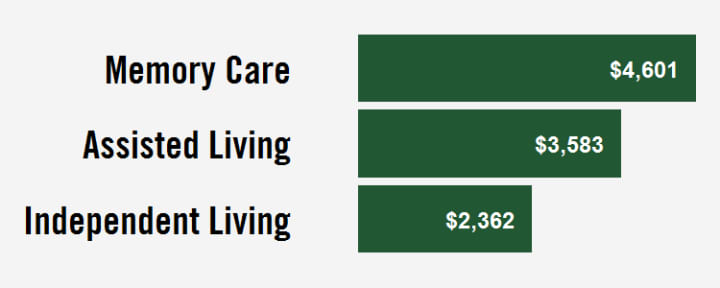Institutions vs Independent Living
What is best for the elderly and those with disabilities?

The issue of putting the elderly or people of disabilities in institutions versus allowing them to live independently has been a debate for years. While there are many arguments for both sides, many people remain uneducated about the effects each lifestyle has on the population being housed.
Stereotypes of Those on Government Assistance
As most people know, those with disabilities often receive compensation or benefits from the government to ease financial burden and pay for major health costs. Just like the homeless population, many people believe that these payments enable people to be lazy or that the benefits are not deserved because many do not work. However, the majority of people with disabilities actually state that they want to work. The problem is that people with disabilities are often discriminated against when it comes to employment. Although there is now legislation protecting individuals from this, there are ways around it. Private companies that do not receive government funds are exempt from following such laws. Not to mention that competition for jobs is fierce to begin with. This leads to many people with disabilities becoming homeless. The government benefits aim to lower the rate of poverty and also aid in the many medical expenses that come as a consequence of having a disability.

Statistics based on senior living in Atlanta, GA. Via A Place for Mom
The Cost to Tax Payers
Many people argue that providing benefits to those with disabilities is costly to taxpayers. However, these benefits are what allow people with disabilities to live independently. Independent living is actually cheaper than running institutions for the government, and therefore taxpayers. When a person is put into an institution, it actually costs more. This makes sense when you factor in meals, personal care assistants, facility use, and other things the institution needs to supply. Many mental health institutions are government run and many nursing homes get government assistance. This means much more money is needed from taxpayers. A person who is living on their own is contributing to society. They use money from their benefits, along with money they may earn from working, to pay bills, do taxes, and buy food or clothing. This means that more money is being paid back to the government. Independent living is cheaper for taxpayers than institutionalization.
Mental Health Benefits
There are many mental health benefits that come from independent living. The elderly are at high risk for developing mental illness like dementia or Alzheimer's. This risk is even more significant for those living in isolated institutions. Stimulation is important in promoting mental health and preventing deterioration of the mind. Going through everyday life, as you do living independently, you have to problem solve and think often. Institutions just don't encourage enough stimulation. This being said, some European and Asian countries have come up with possible solutions to this. One of my favorite ideas was having a combined nursing home and daycare. There are many activities that may help institutions prevent worsening mental illness symptoms, but independent living will always be superior in providing proper stimulation.
Humane treatment
Too often we see stories in the news about residents at nursing homes or patients in hospitals being neglected or abused. This is not to say that every institution is bad. This is also not to say that things like this do not happen with personal, in-home caregivers or even family members. Abuse and neglect of people with disabilities is always heartbreaking. It is an ongoing problem that is often ignored. Looking back on history, those who were "deformed" or had mental illness were locked away from society in asylums or put on stage in "freak shows". Those who were different were publicly shamed or put where they would be forgotten. Mental asylums were especially harsh. Patients were starved and kept in miserable conditions. It wasn't until the later half of the 20th century that society considered the fact that people with disabilities needed to be helped. Hospitals and mental institutions now focus on treatment and help for those with disabilities. While institutions are much better than they used to be, there still remains a dark history and reputation. The overall treatment of people with disabilities has come a long way but there is still progress to be made.
Self-fulfillment
Independent living provides a sense of self-fulfillment that institutions do not. A person who is able to live on their own terms is able to live however they want and pursue their dreams. Many choose to work if they are able to. For many with physical disabilities, this means working from home. Work provides a sense of importance and makes an individual feel as though they have something to contribute to society, whether said individual is disabled or not. As stated before, these people are also giving back to society and contributing to the community through paying expenses like everyone else. The American society encourages independence and teaches it as a core value at a young age. All Americans, disabled or not, deserve the right to have as much independence as they want.
For more information on disabilities, social-political issues, and independent living see...
Mental Health Spending by State
HUD Secretary Says Homeless Person Costs Taxpayers $40,000 a Year
The Importance of Mental Fitness
Sociopolitical Aspects of Disability (2nd Edition) by Willie V. Bryan
The Disability Rights Movement by Doris Zames Fleischer and Frieda Zames
About the Creator
Lorraine Woiak
I am a psychology and music major at the University of North Dakota. As a part of the Army ROTC program, I am working towards a career as a military psychologist.





Comments
There are no comments for this story
Be the first to respond and start the conversation.